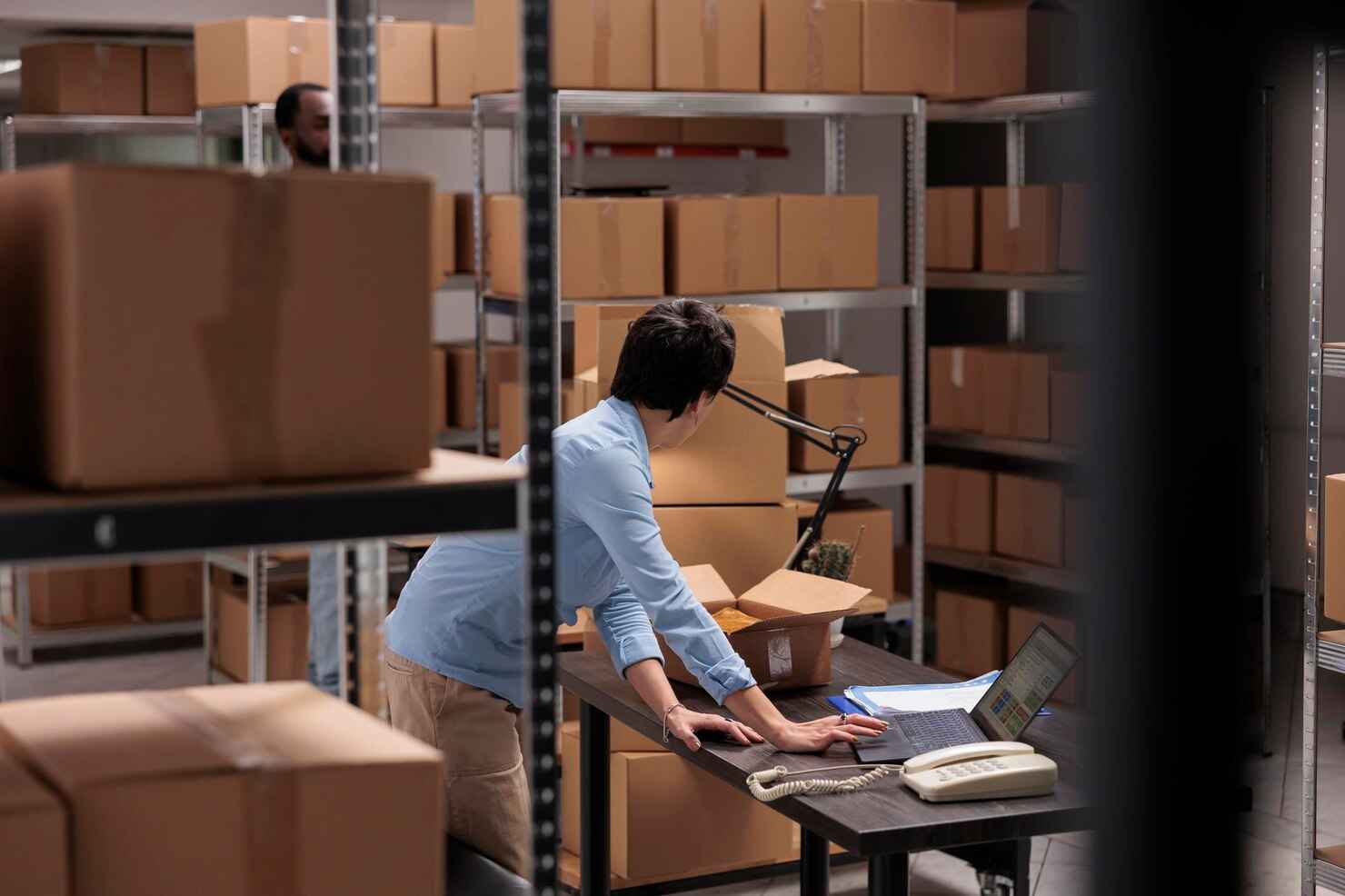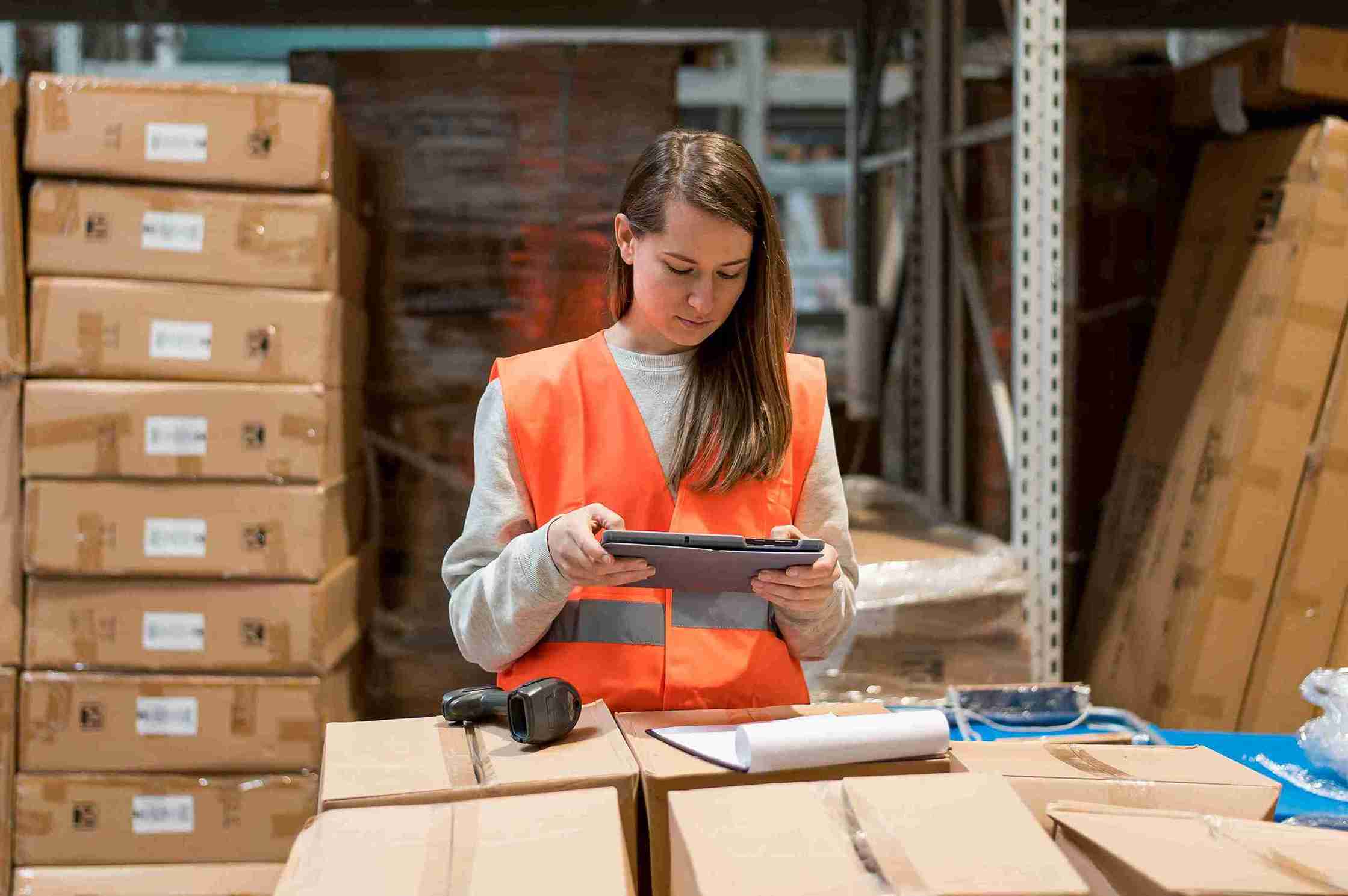 SHARE
SHARE
What Is ERP & How Does ERP Reduce Business Costs by Up to 35%?

Have you ever heard of the term ERP? If you're a business owner or work in the business field, you're probably familiar with this term. But, do you know how beneficial ERP is for the operations and development of your culinary business?
In the past, ERP was a system predominantly used by businesses or large-scale enterprises. However, with the advancement and increased penetration of technology in various sectors of life, ERP has been widely used by businesses across various sectors, ranging from SMEs to enterprises.
To get to know more about the ERP system and how ERP can truly benefit your culinary business operations, read this article to the end!
Definition of ERP
Enterprise Resource Planning or ERP is a process of consolidating and organizing business data through a well-integrated series of software. The ERP software contains applications with automated business functions such as sales reporting, production, accounting, and more.
The ERP system will assist you in managing and monitoring all aspects of business & operational activities from day to day, ranging from finance, human resources, production, supply chain, procurement, distribution, to automatic report generation.
In short, you can monitor your business's health in real-time through this ERP system. The ERP system will also provide better visibility and help companies make decisions based on accurate data.
Development of ERP
The traces of ERP were first discovered in the manufacturing sector, namely the Economic Order Quantity (EOQ) model, with paper-based scheduling systems. It was then replaced by the Material Requirements Planning (MRP) system, which later developed into the Material Resource Planning II (MRP II) system by the end of the 1960s.
Modern ERP practices began in the 1990s due to the emergence of software directly integrated with business operations. The creator of ERP is the Gartner Group.
Initially, the term ERP focused only on digital devices that provided possibilities for manufacturers to manage the supply chain of goods/products, control inventory, automate accounting, and much more.
ERP systems are now widely found across various industries. Even today, ERP software is available on cloud platforms and hosting.
How ERP Systems Can Reduce Costs by Up to 35%
As a business owner, you are always looking for ways to make your business operations run effectively, reduce costs without compromising the quality of your services or products. ERP is one of the right solutions to meet your needs as a business owner who wants to simplify and integrate all business processes into one system.
ESB, as a technology partner for culinary entrepreneurs to optimize their business, understands your needs, including providing ERP system products. ESB's ERP, namely ESB Core, is an affordable ERP with complete features that meet the needs of culinary entrepreneurs to achieve their business targets.
ESB Core will help reduce your culinary business costs by up to 35%. Additionally, there are other benefits you will experience by choosing to use an ERP system to run your culinary business, such as the following:
1. Faster & Accurate Decision Making

Source: freepik / jcomp
ERP is a flexible, modular system that can quickly adapt to your business's scale and development, improving collaboration between divisions. By choosing a reliable ERP like ESB Core, differences in data between divisions can be minimized. This is because each division only needs to input data into the system, and reports will be automatically generated by the system.
You no longer need to wait long to get reports from other divisions because all reports can be accessed in one dashboard in ESB Core. Consequently, you can make faster and more accurate business decisions based on accurate data. In addition to saving time, you can also allocate energy to manually analyze data to more priority and focus areas, such as developing your business strategy.
2. Enhancing Business Productivity
 Source: freepik / DCStudio
Source: freepik / DCStudio
Inefficient and messy spreadsheets, manual workflow, and desktop-based software can certainly hinder your business's productivity. The ERP system in ESB Core can help you control data centrally through master data & reports.
Centralized data management will facilitate control and accelerate outlet sales processes & business management with comprehensive, fast, and accurate reporting. If you have many branches or many culinary business brands, with ESB Core, everything becomes more practical. You can monitor and manage branches and brands from anywhere, anytime. The data is already presented in one dashboard.
ESB Core will also help you manage inventory more efficiently. This includes stock monitoring, automatic adjustments for demand changes, and alerts when stocks reach certain limits.
Through ESB Core, you can use batch systems to maintain the quality of raw materials. You will know when to restock raw materials to avoid shortages or excess inventory in your restaurant.
3. Cutting Costs by Up to 35%
 Source: freepik
Source: freepik
ESB Core is designed to improve the efficiency of your culinary business, one of which is by saving business costs by up to 35%. Cost efficiency includes automated business processes, reducing employee workloads, minimizing human errors, and improving day-to-day restaurant operations. Additionally, by using ESB Core, you can also reduce production costs, increase delivery speed, and improve report accuracy.
4. Enhancing Security and Accessibility
 Source: freepik / rawpixel
Source: freepik / rawpixel
By using ERP systems in restaurant business operations, security systems and accessibility can be improved while reducing various risks and costs. ESB Core provides you with the convenience of managing user usage and access rights so you can maintain the security of your company's data.
One of the benefits of an ERP system is as a risk management tool to protect your business from internal or external fraud. By using ESB Core, you can set and monitor access for each user per branch and per division so that the company can maintain data security and optimize operational efficiency. Additionally, there are tiered transaction approvals in financial matters (approval flow).
When you decide to use the right ERP like ESB Core for your culinary business, operations will run more effectively and efficiently. There is no need to worry about usage because using ESB Core is quite easy and simple and is already integrated with ESB cashier applications so that all branch sales data is fully recorded in ESB Core.
Using an ERP system in your culinary business is a smart solution because you can get insights periodically and in real-time about your business's health so that formulating business strategies and making crucial business decisions can be faster and more accurate. Now is the time to manage your business smartly, not just through hard work.
 SHARE
SHARE




